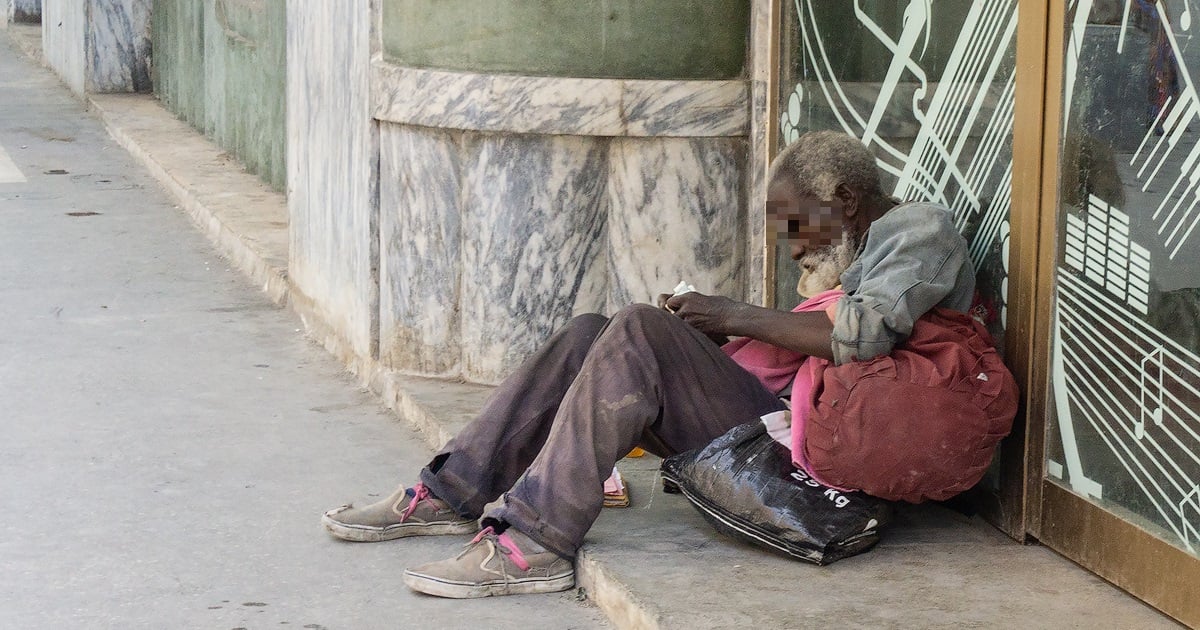The remarks made by Marta Elena Feitó Cabrera, the Minister of Labor and Social Security, have ignited widespread outrage. In a parliamentary session, Feitó claimed that in Cuba, there are no homeless individuals, just people "pretending to be beggars" as an easy way to make a living without formal employment. Her statement, delivered during a National Assembly committee meeting, not only dismissed the existence of extreme poverty in Cuba but also openly criminalized those who wander the streets seeking food or alms.
The public backlash was swift. One of the most powerful responses came from Cuban broadcaster Laritza Camacho, who took to Facebook to pen a heartfelt message defending the most vulnerable. "I've truly looked at the hands, faces, teeth, and even the souls of many beggars... I'm not just talking about the elderly who have a home but live alone and in extreme poverty... We must also acknowledge the alcoholic cleaning windshields, spiraling further down... but we cannot forget they are human beings who need social care," she stated.
Highlighting the Complexity of Poverty
Camacho sharply criticized the simplistic official narrative and underscored the complexity surrounding street children, describing it as "a profoundly intricate issue that deserves dedicated social study and discourse, one that should not be presented in black and white or in such a simplistic manner." Her visceral words painted a stark contrast to the official perspective: "I've seen them bathing in the fountain of Mercaderes, asking the price of soup to pay for it... I've seen them with toothaches and enormous scrotums due to hernias... I've seen them very old and honest, wanting to do some little job, crying with bread in hand..."
She went on to add a harsh observation: "We've also witnessed them being rounded up whenever there's a significant event in the city or country, so they don't roam while the event lasts. I can't deny what my eyes have seen. What I've touched is not a ONEI statistic... it's part of life in the capital and throughout Cuba."
Camacho concluded with a call for empathy and social honesty, stating, "We have a problem, and we are responsible. The discourse cannot be cleaner than the hands begging for alms."
Criticism from Cuban Economist
Pedro Monreal, a Cuban economist, also condemned Feitó's words. On social media platform X, he wrote, "The 'minister' of meager wages and pensions has delivered the most insolently reactionary speech of 'continuity.' She claims that Cuba has no beggars, only people disguised as beggars. Perhaps there are also people disguised as 'ministers'." He further remarked, "It seems the 'minister' is not concerned about the poor, only that they are visible. She labels them as drunks, impostors, and illegals. The real fight is against poverty, not the poor. Stop this nonsense and propose decent wages and pensions."
The reactions reflect a deep dissatisfaction with a reality that, far from vanishing by decree, remains evident on every corner of the island. As Camacho urged, "I invite you to walk the streets without a cheering committee, without applause. I invite you to inquire about each story."
Understanding Poverty in Cuba
What did the Cuban Minister of Labor say about homelessness?
Marta Elena Feitó Cabrera, the Minister of Labor and Social Security, claimed that there are no beggars in Cuba, only people pretending to be homeless as an easy way to make a living without formal employment.
How did Laritza Camacho respond to the minister's statement?
Laritza Camacho, a Cuban broadcaster, criticized the minister's statements on social media, defending the homeless and highlighting the complexity of poverty. She emphasized the need for empathy and social responsibility.
What was Pedro Monreal's reaction?
Economist Pedro Monreal condemned the minister's comments, criticizing them as reactionary and pointing out that the real battle should be against poverty, not the impoverished individuals themselves.
